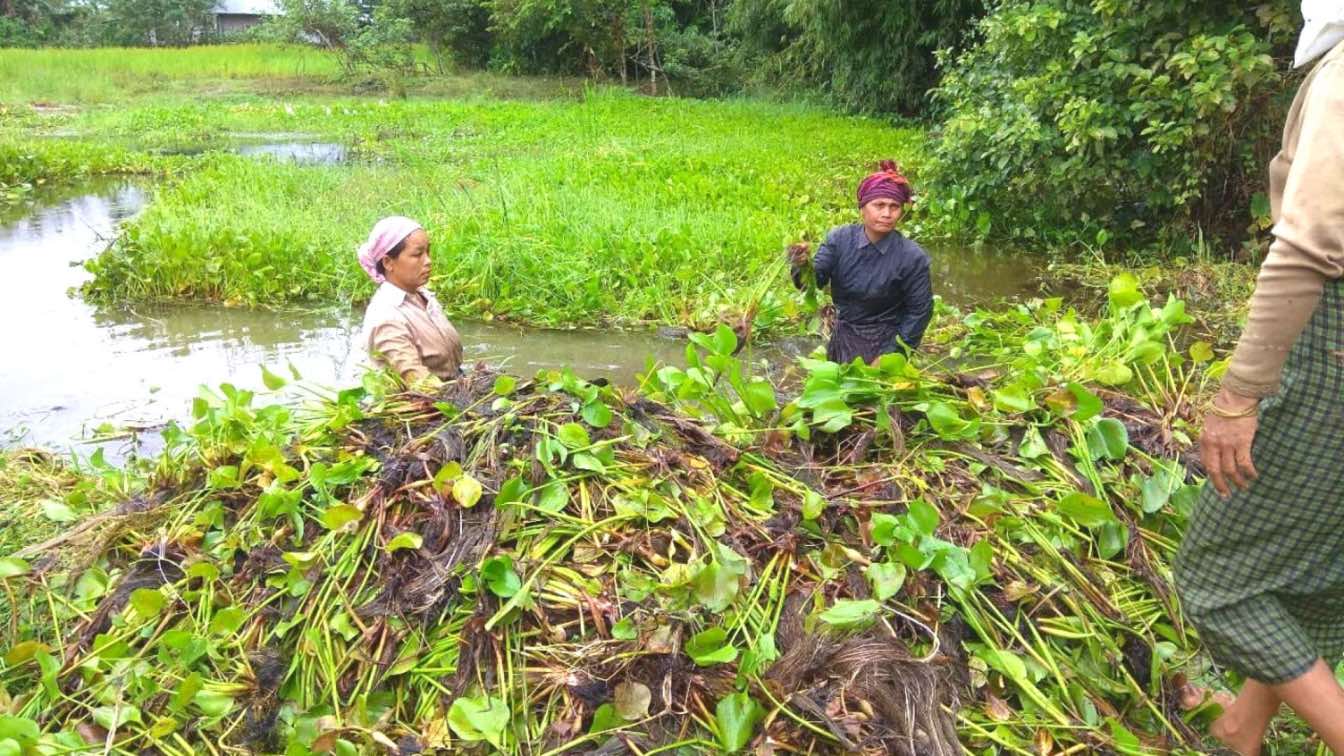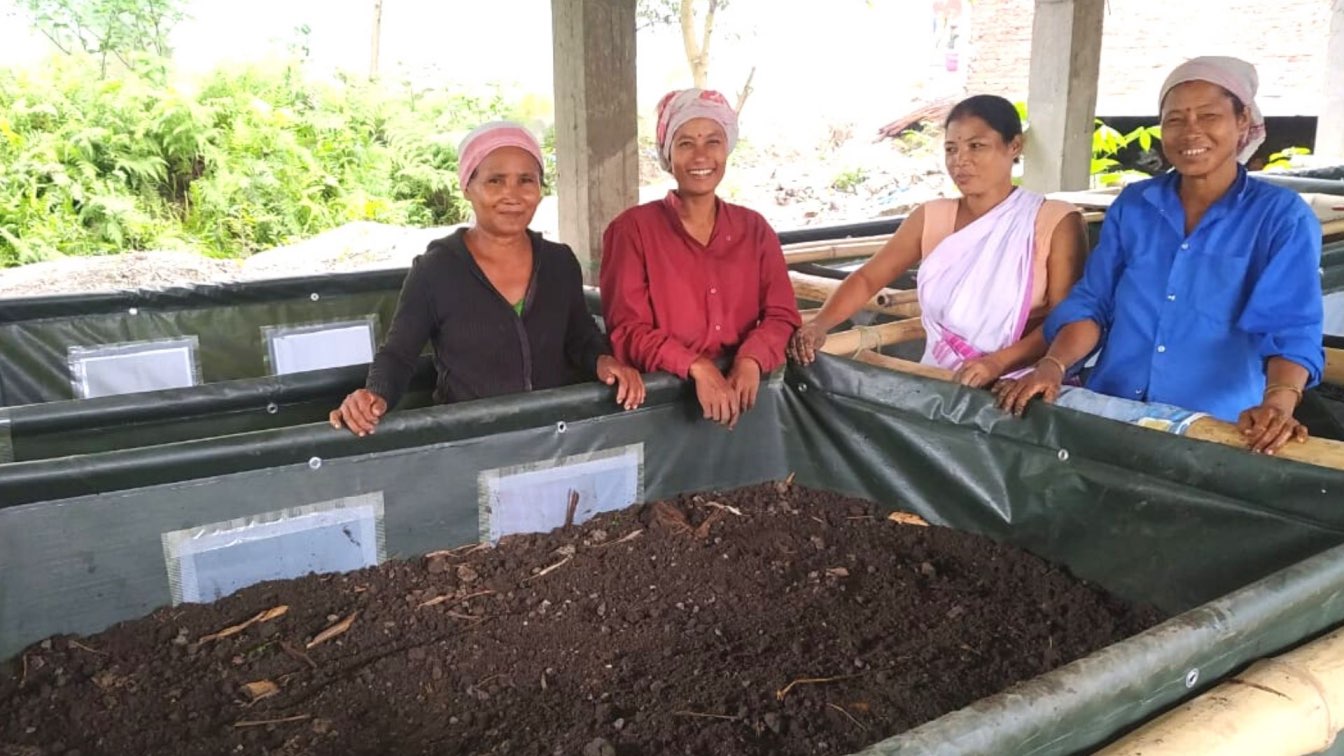Momee Pegu (34) from Majuli, a river island in Brahmaputra River, Assam, had never aspired to become a farmer, despite the fact that she belonged to a family that practised the profession. She says she was aware of the sheer hard work the field demands, and always thought farming reaped fewer results.
Instead, she pursued a masters in social work. Coincidently, the course took her towards organic farming, as part of extra-curricular activity. But this, she says, changed her perception, allowing her to see how farming can address health, environment and sustainability-related concerns of a village.
“I undertook training from Samir Bordoloi, an expert in organic and sustainable agriculture, and learned how to start small and scale up farming practices. It gave me a different insight into farming and its importance. To take sustainable practices to the masses, I began organic farming in 2009, and launched an NGO, RIGBO, in 2015, which is the name of the local tribe means community volunteering for a cause in Mising,” she tells The Better India.
Not only did Momee become an organic farmer, but she also inspired her community to adopt the practice. Along with encouraging organic farming among villagers, her initiative addressed the environmental issue of water hyacinth in the river, by turning 11,000 kgs of the invasive weed into organic manure.
A community initiative

Momee says the initiative began to create a safe space for young women in the village to be able to bond and express themselves. “They could express their concerns. Many youngsters discussed the deteriorating health of the soil, which was affecting agriculture produce directly. After connecting with a few women, I started involving them in organic farming, creating organic pesticides, and other sustainable activities,” she says.
In 2016, Momee and 32 women came up with an idea to “make something out of nothing”. “The issue of water hyacinth has been long pending in the village. The invasive weed blocks sunlight in the water body and affects aquatic flora and fauna,” she says.
Water hyacinth, a bio-indicator of a polluted water body, is known to cause evapotranspiration and create favourable conditions for mosquitoes and snails. The rapidly growing weed affects irrigation, reduces oxygen for fish, and destroys native aquatic plant species.
Momee and other women in the village began by removing the weed to decompose it into organic manure. Research suggests that organic compost made from water hyacinth has an optimum balance of carbon, nitrogen and phosphorus content. The compost can help improve the physical characteristics of soil, and gradually releases nutrients to enrich it. The compost also assists in microbial activity.
“In the first couple of months, we prepared around 1,000 kilos of organic compost. After the initial success, we scaled the process to produce 6,000 kilos of compost,” Momee says, adding, “The first batch earned the women Rs 2.2 lakh. I did not take any cut from the profits, but distributed equally among the women.”
Black gold

Impressed by Momee’s work, officials of the district agriculture department visited the facility. Agriculture Development Officer, Hariprakash Lagashu, describes her work as unique. “A proposal for setting up a compost unit from water hyacinth has been submitted to higher authorities. Once implemented, it will also help create employment for the villagers,” he says.
The organic compost received tremendous response, and over a hundred farmers began demanding it. “We are unable to meet the increasing demands, as some farmers have even demanded the manure in tonnes,” Momee says.
Jyotimai Pegu, associated with Momee, says she earns Rs 5,000 a month by selling the compost. “The villagers are learning about the hazards of hyacinth, and the benefits of treating it. The income has helped pay the monthly fees for my children’s education.”
Momee says convincing villagers to produce and sell compost was not an easy job. “Though many villagers practice agriculture, farmers do not see it as a business. To them, it is more of a source of livelihood. Besides, changing the mindset, and packaging and marketing of the compost was a new concept to learn for all,” she adds.
The organic farmer says that a lot more work is awaited, despite initial success. “A systematic approach is planned for mass production. The efficient collection of hyacinth from water is getting streamlined,” she says.
Momee says she wants to spread the message of sustainable farming. “Farming and conserving the environment should go hand-in-hand. Farmers should adopt practices that will not harm the environment, which is important for human existence,” she adds.
Edited by Divya Sethu
No comments:
Post a Comment